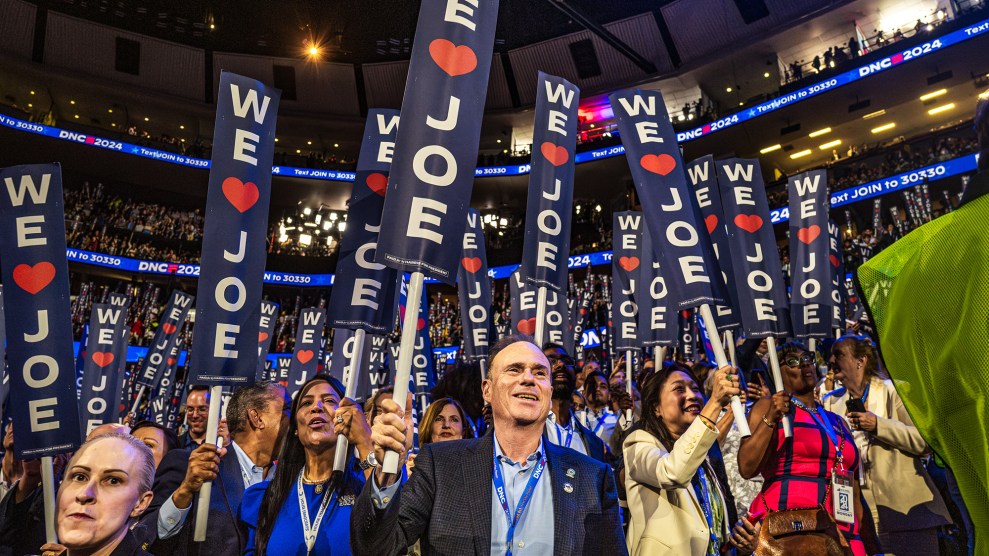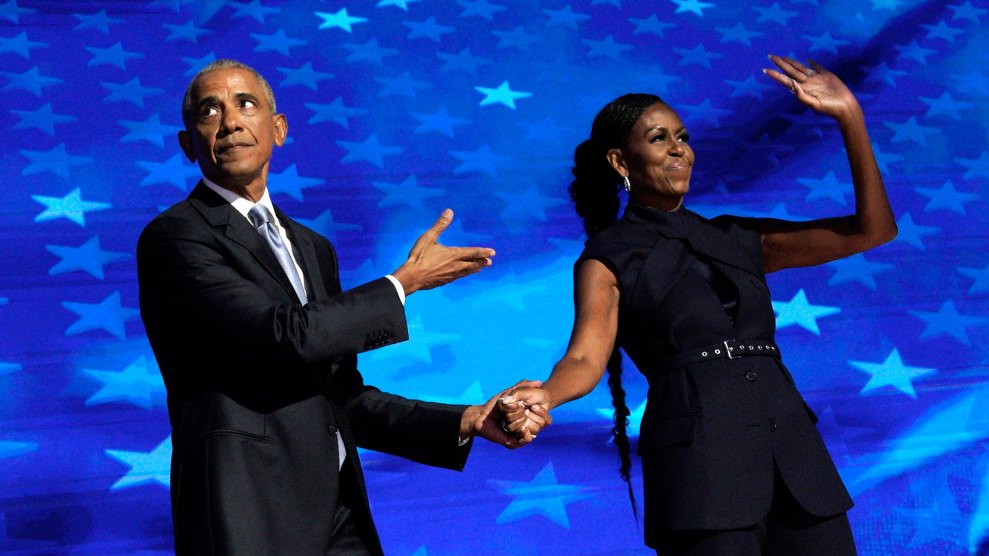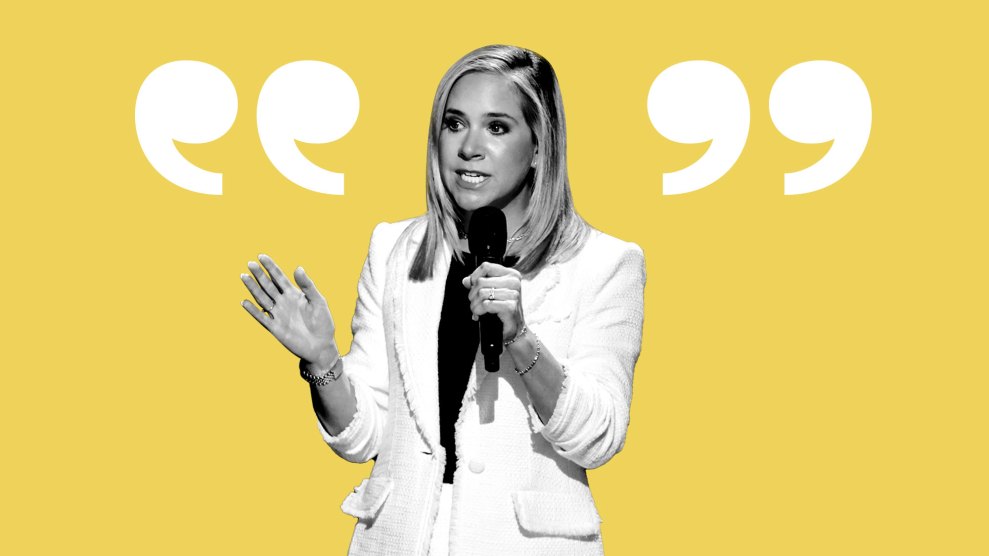
Kaitlyn Joshua addresses the crowd at the 2024 DNC.Chip Somodevilla/Getty
On the first night of the Democratic National Convention, three women shared their personal stories of needing an abortion or miscarriage management. One was Kaitlyn Joshua, who was denied this care in Louisiana shortly after the Supreme Court overturned Roe v. Wade.
When Joshua began to miscarry around 11 weeks into her pregnancy, the bleeding was profuse and the pain worse than birth with her first child. Over two days, two emergency rooms turned her away. When she arrived at the second ER, her jeans were soaked in blood and a security guard put her in a wheelchair. Again, doctors wouldn’t confirm her miscarriage, provide a dilation and curettage procedure to remove the fetus, medication to hasten the miscarriage, or even medicine to alleviate the pain. “I was in pain, bleeding so much my husband feared for my life,” she said on stage in Chicago.
“It took me weeks to pass my pregnancy at home,” she said Tuesday, at a training session for how Democrats should message the abortion issue in their communities. “I was terrified. And the experience made me see how black women are dying at alarming rates in our country.”
Joshua’s miscarriage changed her life in one way she did not expect—she became a campaign surrogate for the Democratic presidential ticket, first for President Joe Biden and now for Vice President Kamala Harris. In June, she appeared in a campaign ad for the Biden campaign. She plans to spend the fall campaigning across the country for Harris.
After the panel on Tuesday, I caught up with Joshua. We discussed what it was like to suddenly become a reproductive rights advocate, to retell the story of her miscarriage over and over, and what it took to have another child under Louisiana’s strict abortion ban.
MJ: How did you decide to take your experience with a miscarriage under an abortion ban and use that to become an advocate for reproductive rights?
KJ: I actually had no intention [of speaking out]. I have a twin sister who’s a doctor now, and at the time, she had called me from med school, and she was like, “Look, the Louisiana Department of Health is holding a hearing.” And mind you, this was two months after my miscarriage, so I was still mad as hell, right? Still angry at the experience, and still very jaded on the whole thing. And I told her, “No.” And she said, “If you don’t say anything, they’re not going to know what is happening in these emergency rooms as a result of our near total abortion ban in Louisiana.” So I said, “Fine.”
I definitely think storytelling is going to move the needle in this election.
And I’m so glad that I did, because as soon as I shared my story, not only did the Louisiana Department of Health take that feedback and try and do some work the next legislative session, but an NPR article picked me up immediately, and then before I knew it, CBS 60 Minutes picked it up, and then I’m getting calls from the White House, and now I’m touring with Kamala Harris. And so I’m glad I did it, because I feel like it’s such important work. I definitely think storytelling is going to move the needle in this election. And without those stories and women speaking out, we wouldn’t be where we are right now.
MJ: Are you able to see the impact that your story is having on people?
KJ: Someone who ran into me in the hotel was like, “Oh my god, I saw you on the stage last night. I need you to know I’m here with all of these wealthy white people, and they are now voting Democrat and now completely switched over from Republican because of the abortion issue.” I don’t think we would be as far in the conversation around reproductive freedom or reproductive justice if we weren’t storytelling and people understanding the intersectionalities of maternal health care and abortion care.
Also adding another component, in my opinion, as a woman of color, being able to highlight the issue around black maternal health in this country is really important to me, and so I feel like I also can carry the water on that too.
MJ: What is it like to tell your story over and over, and so publicly?
KJ: While I’m telling the story, it’s like I’m almost reliving it every single time. I had done a great job, before I signed my name to the campaign, of just burying that story in the back of my mind and moving forward. That sounds so bad, but I just didn’t want to constantly relive the trauma. And so I did the work with my therapist. And now, sharing the story in the moment, while difficult, afterwards the way that people receive it and the way that they comfort you, it’s very therapeutic, actually. And so in a lot of ways, even though it doesn’t get easier to tell the story, when I see the impact that it has, that makes it a little bit easier.”
MJ: Given what you went through and the fact that the law hasn’t changed in Louisiana, the strict abortion ban is still in place, do you feel comfortable trying to have another baby?
KJ: I had another baby. So my son is 10 months old. He’ll be 11 months in two days.
MJ: Congratulations!
KJ: My husband and I made the crazy decision to travel [to New Orleans] from our house [in Baton Rouge] for me to go to my appointments and see a physician that believed in abortion care, should I ever need it, or should my life be in danger. I understand my privilege in that. Not everybody can drive an hour and a half away and then drive out an hour and a half back, take off the work, do all the things to be able to get to a provider that fully practices in their full capacity, but we were blessed to be able to do it. And that was the only way I was going to do it, because I was not going back to the hospitals that I went to.

















